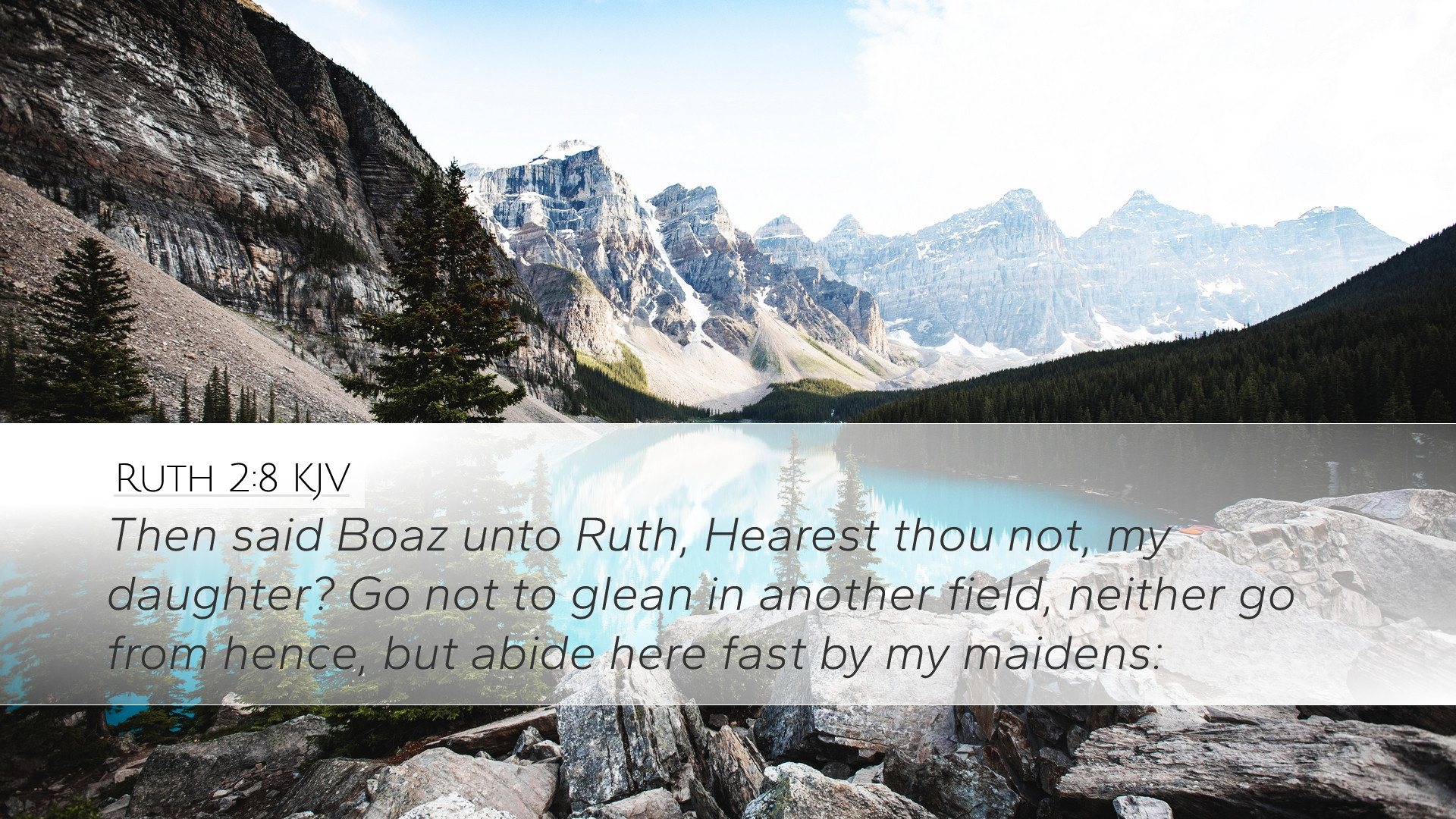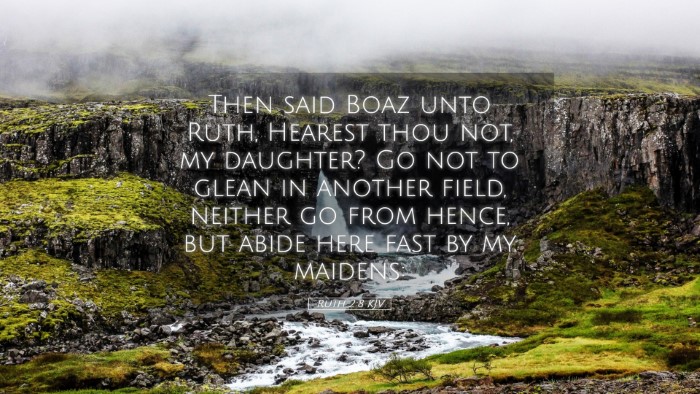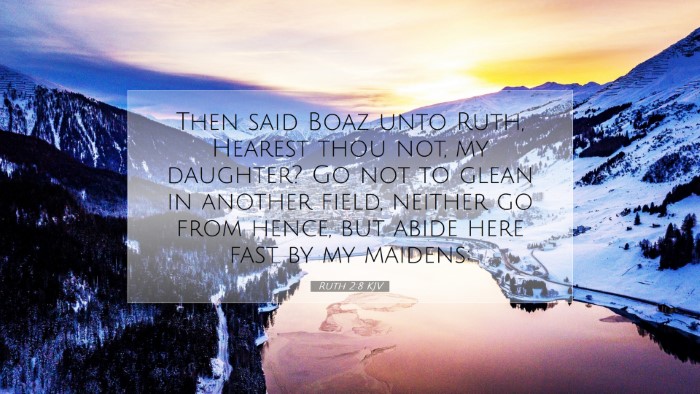Old Testament
Genesis Exodus Leviticus Numbers Deuteronomy Joshua Judges Ruth 1 Samuel 2 Samuel 1 Kings 2 Kings 1 Chronicles 2 Chronicles Ezra Nehemiah Esther Job Psalms Proverbs Ecclesiastes Song of Solomon Isaiah Jeremiah Lamentations Ezekiel Daniel Hosea Joel Amos Obadiah Jonah Micah Nahum Habakkuk Zephaniah Haggai Zechariah MalachiRuth 2:8
Ruth 2:8 KJV
Then said Boaz unto Ruth, Hearest thou not, my daughter? Go not to glean in another field, neither go from hence, but abide here fast by my maidens:
Ruth 2:8 Bible Commentary
Commentary on Ruth 2:8
The verse reads:"Then said Boaz unto Ruth, Hearken, my daughter, go not to glean in another field, neither go from hence, but abide here fast by my maidens."
Introduction
The Book of Ruth, often regarded for its literary elegance and profound themes of loyalty and divine providence, depicts the story of Ruth, a Moabite widow, and her relationship with Boaz, a wealthy landowner in Bethlehem. Ruth 2:8 serves as a pivotal moment in this narrative, highlighting themes such as protection, loyalty, and divine favor.
Exegesis of Ruth 2:8
In this verse, we observe Boaz's direct address to Ruth. His words are filled with a fatherly kindness and wisdom that indicate his regard for her vulnerability as a foreigner and widow. The command for her to stay close to his maidens not only suggests physical protection but also highlights the importance of community and belonging.
Theological Insights
-
Divine Providence:
Boaz’s invitation for Ruth to glean in his fields reveals a powerful theological motif of provision. Scholars like Matthew Henry point out that Boaz acts as a type of Christ, providing for those in need and fulfilling God's plans through acts of kindness.
-
Protection and Safety:
With Ruth being a foreigner, her presence in the fields could render her vulnerable to harassment. Boaz's directive is a protective measure that not only ensures her safety but also illustrates God's care for those in dire circumstances.
-
Community and Belonging:
In calling Ruth to remain with his maidens, Boaz fosters a sense of community. Albert Barnes emphasizes that this action signifies Ruth's acceptance into a new familial and communal bond, illustrating the inclusivity of God's people.
Key Themes from Public Domain Commentaries
-
Grace and Favor:
Boaz's invitation can also be seen as an act of grace. Adam Clarke comments on how grace often selects the most unlikely candidates; in Ruth's case, a Moabite widow, emphasizing God's inclusive mercy.
-
Wisdom in Guidance:
Boaz displays wisdom and discernment in his dealings with Ruth. He recognizes her loyalty to Naomi and intends to guide her wisely, pointing to the importance of mentoring relationships within the faith community.
-
Loyalty and Responsibility:
Ruth's loyalty to Naomi is reciprocated through Boaz's protective actions. This reciprocal nature of loyalty illustrates covenantal relationships emphasized throughout Scripture.
Practical Applications for Today
The narrative in Ruth 2:8 has profound implications for believers today:
-
Embrace the Vulnerable:
Pastors and church leaders are encouraged to create environments that emplace safety and care for the vulnerable in their communities, reflecting the nature of Boaz.
-
Create a Sense of Belonging:
Churches should strive to be places where all individuals, no matter their backgrounds or past traumas, feel welcomed and valued.
-
Pursue Grace and Kindness:
This passage calls believers to let grace influence their interactions, aiming to provide support and sustenance to those in need.
Conclusion
Ruth 2:8 encapsulates significant lessons on the nature of God’s provision through human interactions. As Boaz extends kindness and welcomes Ruth into safety, we see a profound image of God's love and fidelity toward the marginalized. Reflecting upon this verse, believers are reminded to embody the same spirit of kindness, protection, and community within their own contexts.


